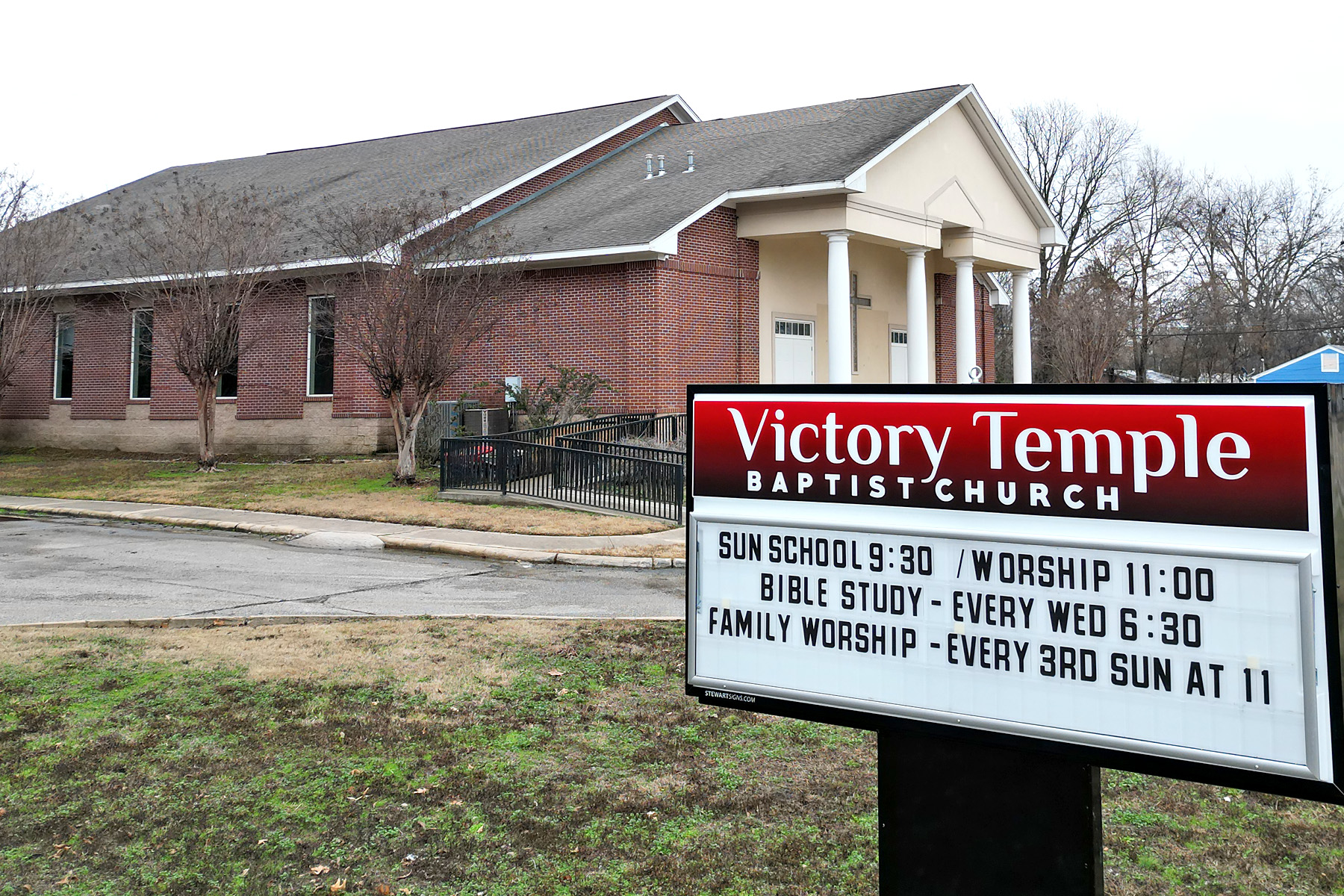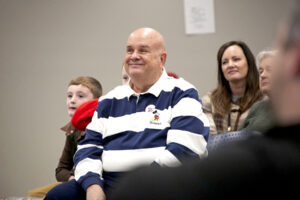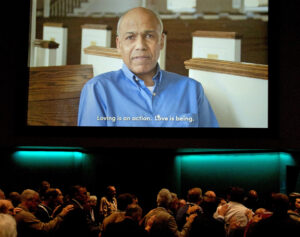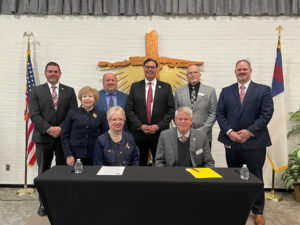By Lindsey Williams
Writing Specialist
“I think if I knew what God had planned, I would have told Him no,” was the hard truth Pastor Eddie Jones of Victory Temple Church, Greenville, confessed. “I was young, about mid-twenties, and I didn’t know any better. I didn’t know I could have been killed, shot, or whatever. I was out there wanting to start a church. I wanted to preach, and that’s what I did.” Goliathan obstacles of a fallen world would await Jones, but he would learn, get up, and persevere for the glory of his God.
When he was just a young and inexperienced preacher in the 1980’s, Jones entered the office of the Jackson County Baptist Association with the intention of starting a church in Moss Point. He had been told that the Baptist Association could provide the funds, so he asked the young lady at the desk if this were the case. “Don’t you move,” she told him, and Jones nervously thought to himself, “I’m in trouble now.”
“Then Dr. David Lee and another gentleman came out from the back,” Jones recounted, “and he said, ‘Bro. Eddie, we’ve been praying that God would send us somebody to help us start up a church.’ I had no idea that there were not any black Southern Baptist churches in the state of Mississippi at that time.”
This God-orchestrated encounter began Jones’ church-planting mission. A few years after starting Christ Temple Church in Moss Point, he partnered with First Church, Greenville, to plant Victory Temple. Having pinpointed parts of the community, they began to draw people in with two Big Eight Bible Clubs and Bible studies within an apartment complex. In the small community of Avon, a farmer named “Buddy” Cochran received Jones to have Bible studies with his farmhands. Jones also taught in drugs and AIDS seminars in the school systems, building relationships with teachers and principals.
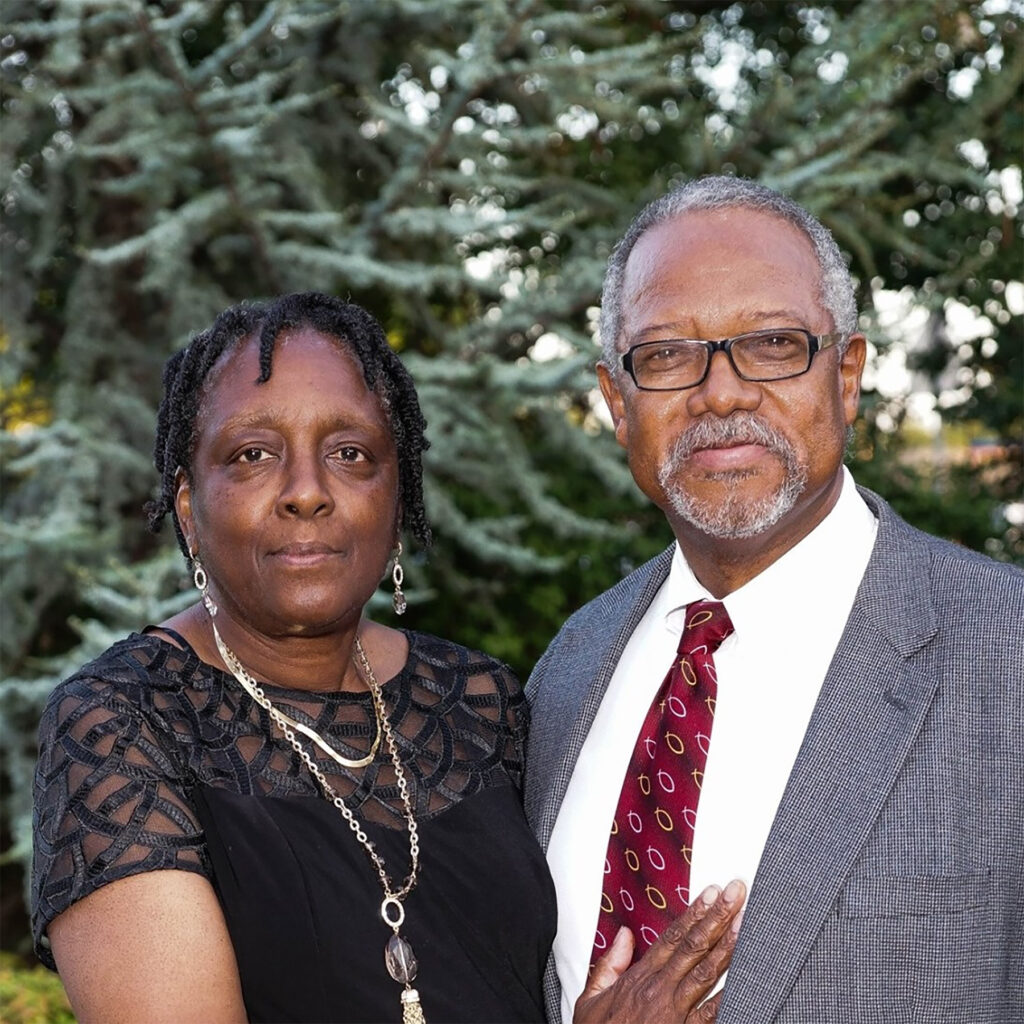
As Victory Temple began to form, the church met in Jones’ house, then rented a church building, all while saving money to buy a property. In time, the Mississippi Baptist Convention Board (MBCB) gifted Victory Temple with a land grant, and the Woman’s Missionary Union (WMU) loaned the church a trailer for the meantime. Mississippi Baptist churches, mission teams, and Tennessee Baptists arrived to offer aid in the construction. Even after the building was finished, however, more work was to be done. Through broadcasting and newspaper columns, Jones continued to invite the community to Victory Temple.
On paper, Jones’ journey appeared simple. But as he had learned from his experience in planting Christ Temple, obedience to God causes worldly opposition to rise.
“The Delta is a different animal,” said Jones. “You have a lot of racism here that is thicker than other areas. I got here in the late 80s and began to knock on doors and tell people about Jesus. That was the easy part. The hard part was that a couple of years before First Church, Greenville, invited me to come, they had apologized for their part in telling blacks that they were not welcome in their church. So even though I wasn’t there, the black people never forgot that. Someone in the church told me, ‘God got ahold of us, and we changed our mind,’ and that’s when they extended the invitation for me to start a church in the black community.”
Before Victory Temple took shape, Jones set up an office space in First Church, Greenville, and although many members were welcoming, some were hesitant toward him. For the most part, Jones walked on eggshells, and his situation was no easier in the neighborhoods.
“When I went out to knock on doors, behind every door they would say, ‘Oh yeah, you’re that boy that Southern Baptists hired to keep us black folks out of First Baptist.’ And I said, ‘No sir, no ma’am. That’s not true. I’m out here starting a church and the church will be independent of First Baptist.’ But they said, ‘No, we remember you didn’t want black folks to come.’ So I knocked and I knocked and I tried, but they kept saying things like, ‘No, they didn’t want us there.’
“I went back to the pastor of First Greenville at the time, Dr. Kiely Young, and said, ‘Look, every place I go, the black people said that they didn’t want to come because of the history here. I can’t do anything. I’m trying to get the church started but I can’t do a thing.’ And Bro. Keily looked at me, and I was waiting on him to come around his desk and give me a hug or say, ‘Brother, let me pray with you.’ What Bro. Keily did, however, was stand up and say, ‘Bro. Eddie, suck it up and get back out there.’ After every door had been slammed in my face, I really got energized. That’s when I went out and started all those different ministries.”
Jones shared about the Victory Temple that stands today, “It’s an all-black congregation, and we probably fluctuate between 65 and 95 people, which is the average since the pandemic. The Sunday school is still weak and we’re trying to build back on that, but Wednesday Bible study is pretty strong, running about 40 or 50.
“At one time, Victory Temple was doing so much in the community that other churches began to mimic it,” said Jones. “We have been recipients of missions and we have done missions. One thing we did was take part in a ministry from the WMU, ‘Christmas in August’, that would buy school supplies for churches to minister to their communities, and that opened doors for us to have Bible studies in the schools.
“A lot of work still needs to be done,” Jones affirmed. “The MBCB does what it can to try to help us. Back in the early 80s, the Convention supported my church planting financially, and when I sent in a request for a mission team, they would send that request around the state and people would stop in and help us. Now the Convention still listens to a lot of my needs, but I got caught up in the transition and the old way of doing things, and I’m still trying to figure out what the young people are doing. A lot of the new workers at the Convention have new ideas, and that takes me some time to catch up on them.
“I’m afraid if I were to leave Victory Temple today that they wouldn’t be able to get the right pastor. I’m trying to keep it connected to the Convention, because this is the largest and I believe the most productive black Southern Baptist church in the Mississippi Delta, and we don’t want to lose this church.”
Lowell Walker, the African American Ministry Consultant for the MBCB and pastor of Mt. Sinai Church, Tupelo, said of his coworker in Christ, “We are thankful for Pastor Eddie Jones’ commitment and service as he continues to encourage his congregation in giving to the Cooperative Program, and for his service to the churches and surrounding communities with the Gospel.”
Your gifts to the Cooperative Program support church planting and multicultural ministry efforts in Mississippi.

